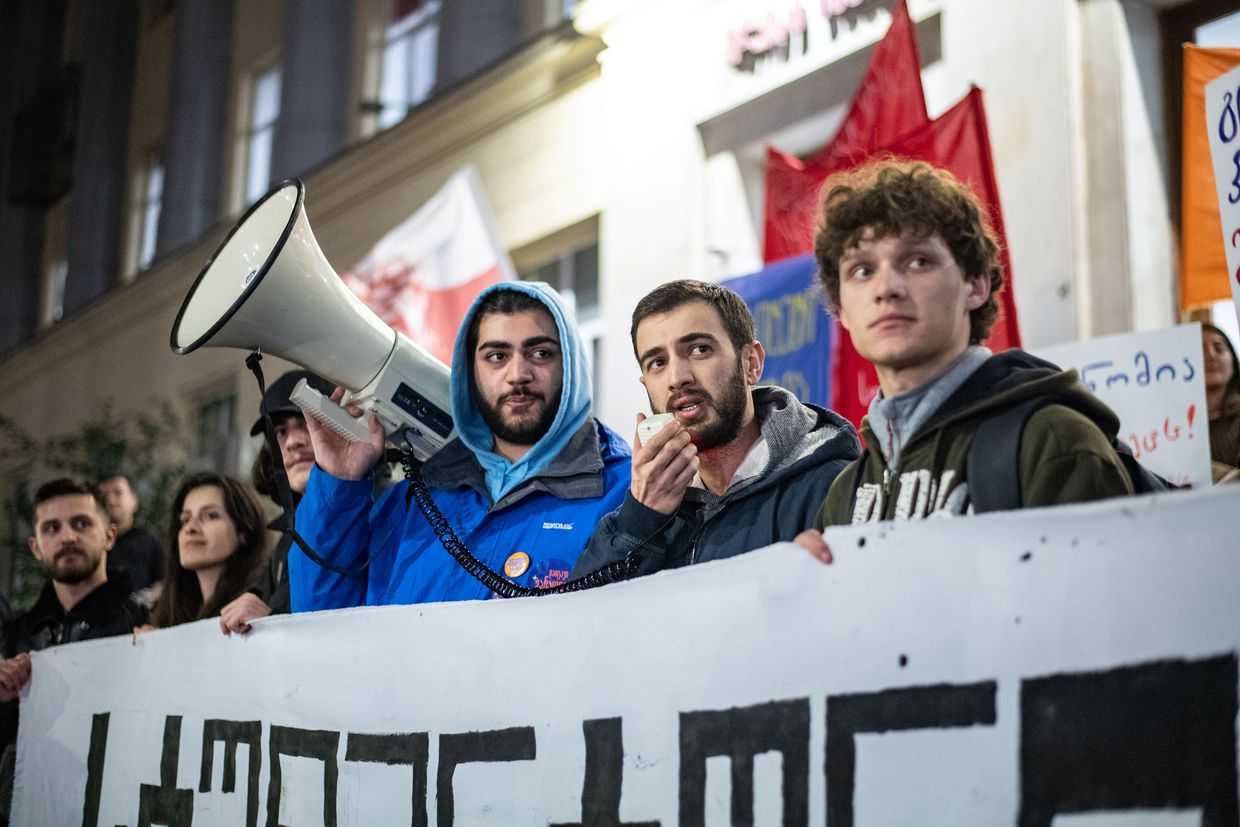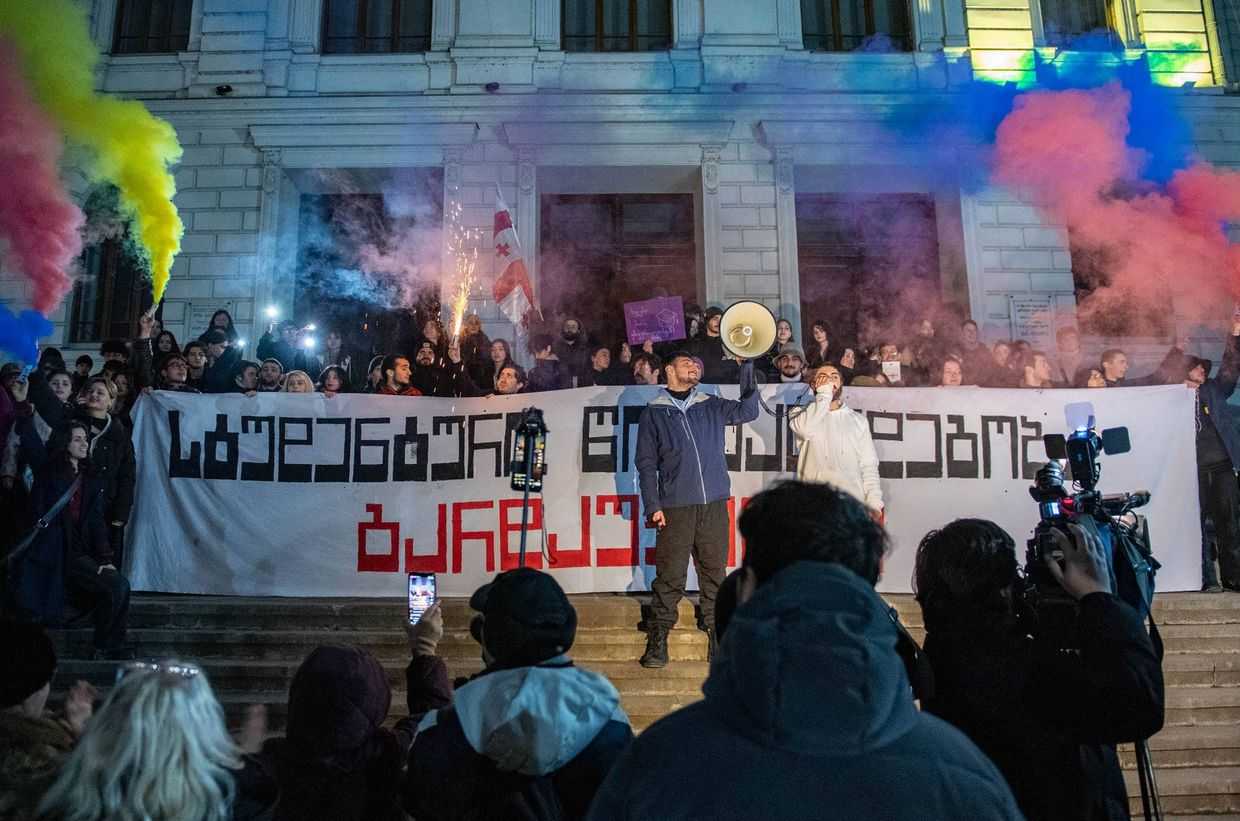
Irakli Gharibashvili has vowed to quickly ‘restore constitutional order’ in a combative speech in parliament before being confirmed as Georgia’s Prime Minister.
MPs voted 89 to two on Monday to confirm Gharibashvili; almost all opposition MPs have boycotted parliament since October’s parliamentary elections.
Gharibashvili reserved most of his 50-minute speech to criticising what he called ‘a refuge of criminals and terrorists’, referring to the United National Movement (UNM).
Speaking in parliament earlier on Monday before the hearings began, Gharibashvili said he had three priorities as PM, to establish order and ‘bring the destructive forces into a constitutional order and framework’, to oversee the deployment of a COVID-19 vaccine, and to develop a 10-year development plan.
Seen as one of the most staunch anti-UNM figures within Georgian Dream, his nomination comes as crisis boils over in Georgia over October’s disputed parliamentary elections. He was put forward after his predecessor, Giorgi Gakharia, resigned over disagreements within the party over the possible arrest of UNM leader Nika Melia. Gakharia said he objected to Melia’s arrest.
[Read more: Gakharia resigns as Georgian PM over Melia arrest]
As MPs prepared to confirm Gharibashvili as prime minister, several dozen anti-government protesters gathered outside parliament and the Government Chancellery building, objecting to the confirmation and demanding snap elections.
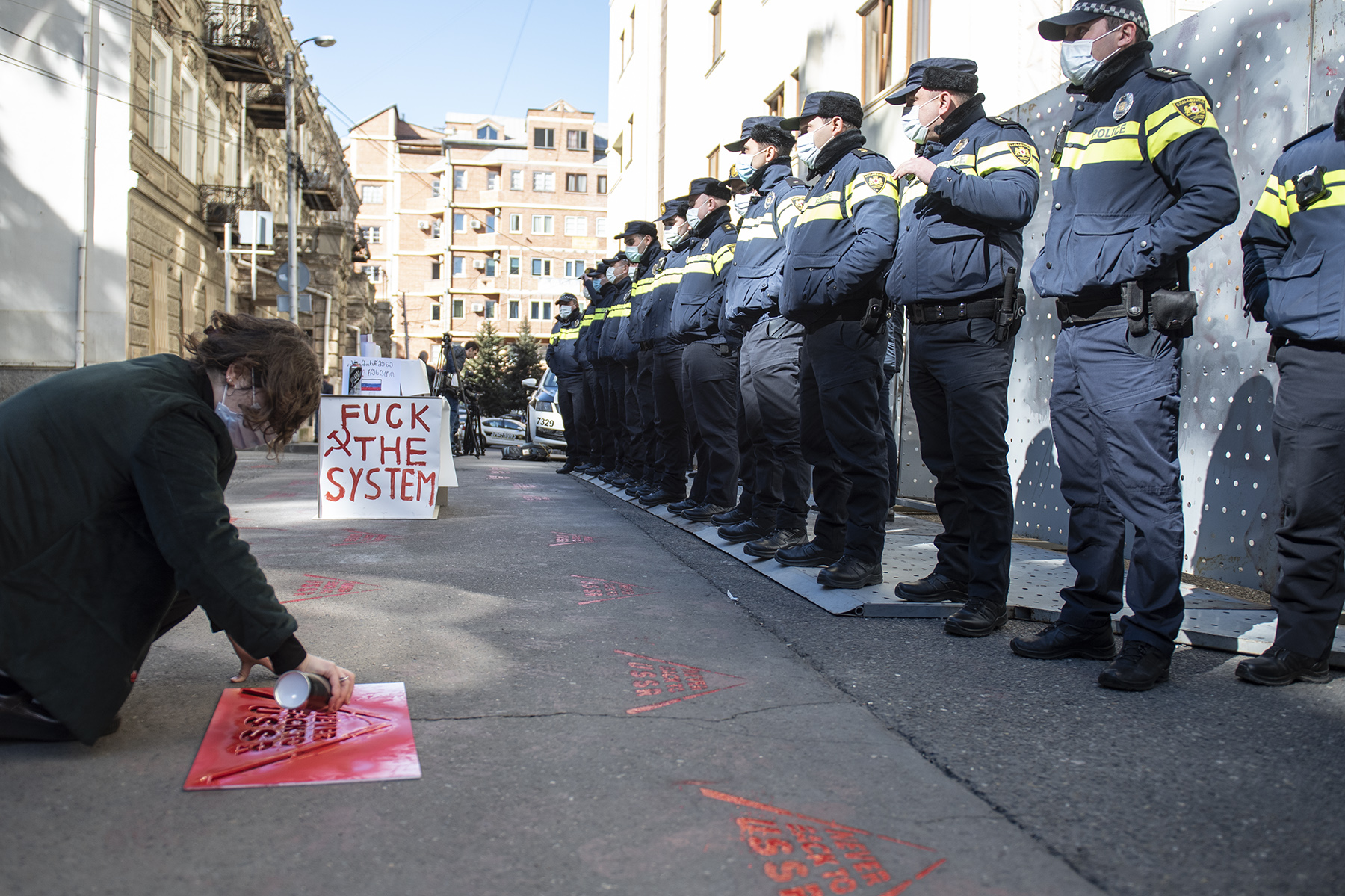
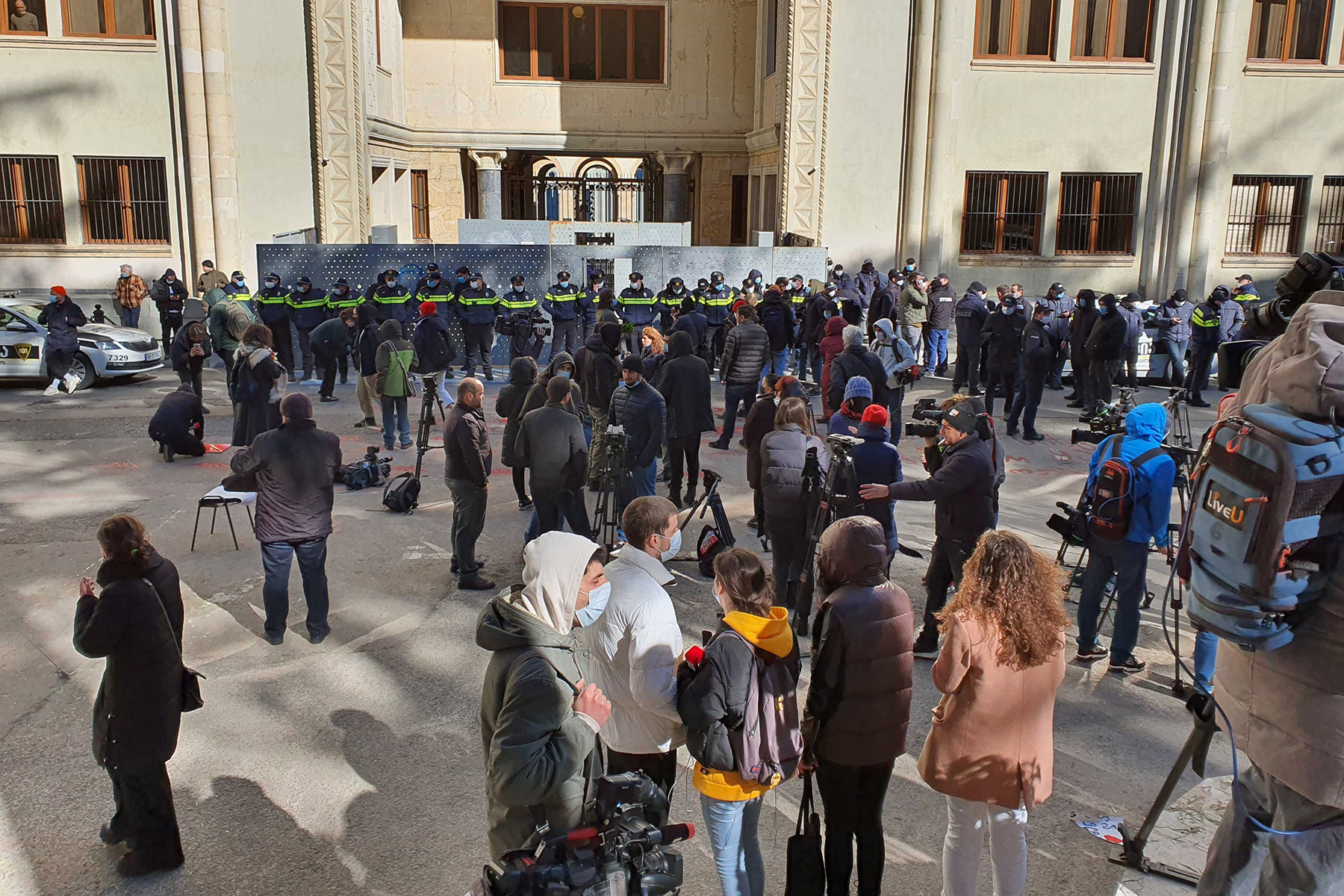
In his speech, Gharibashvili reaffirmed that the government was ‘categorically against’ any negotiations about snap elections. ‘This issue is closed, this is not under discussion’, he said.
Gharibashvili spoke at length about the period eight years ago, before Georgian Dream came to power, including about the court system and police.
He said the government was forced to fight daily against accusations and attempts to destabilise the country by ‘destructive forces’.
‘Fighting with the machine of lies is a very big challenge. So we have to do everything to more proactively answer each accusation and lie’, he said adding that the truth was on their side.
‘For the past 30 years, we have witnessed a number of destabilisations and disorders. Unfortunately, a certain destructive opposition continues this process, which doesn’t give us the opportunity for rapid, effective and stable development.’
Speaking about his plan to develop a 10-year development plan for the country, Gharibashvili accused the UNM of not having created such a plan. Georgian Dream have been in power for the past eight years.
He also said that the Rose Revolution, which swept the UNM to power in 2003, had ‘destroyed’ the Georgian economy. Georgia’s GDP grew by an average of 6.7% annually from 2003–2012.
He also paid tribute to Archil Tatunashvili, as today marks three years since he died in South Ossetian custody in 2018. He said Tatunashvili death was the result of ‘unreasonable politics’ implemented by the UNM.
Gharibashvili also called remarks that the Davit Gareja Monastery Complex does not entirely belong to Georgia ‘treason’. The complex sits on a disputed area of the Georgian-Azerbaijani border. Georgian authorities are currently investigating an alleged forfeiting of Georgian lands to Azerbaijan during the UNM’s rule.
[Read more on OC Media: Georgia blames former ‘senior officials’ for Davit Gareja border dispute]
Gharibashvili called Azerbaijani President Ilham Aliyev a ‘wise leader’ and vowed to make one of his first visits to Azerbaijan if the pandemic permitted.
‘They’ll have to arrest all political leaders’
Members of opposition groups United National Movement (UNM) and European Georgia promptly condemned Irakli Gharibashvili’s messages.
Several said that Gharibashvili’s pledge to ‘restore order’ foreshadowed a raid on the UNM’s offices in Tbilisi, where party leader Nika Melia remains with other opposition leaders.
Tbilisi City Court recently approved an application by the Prosecutor’s Office to arrest Melia for violating his bail conditions. He is awaiting trial for ‘organising group violence’ for his role in clashes with police outside parliament in June 2019.
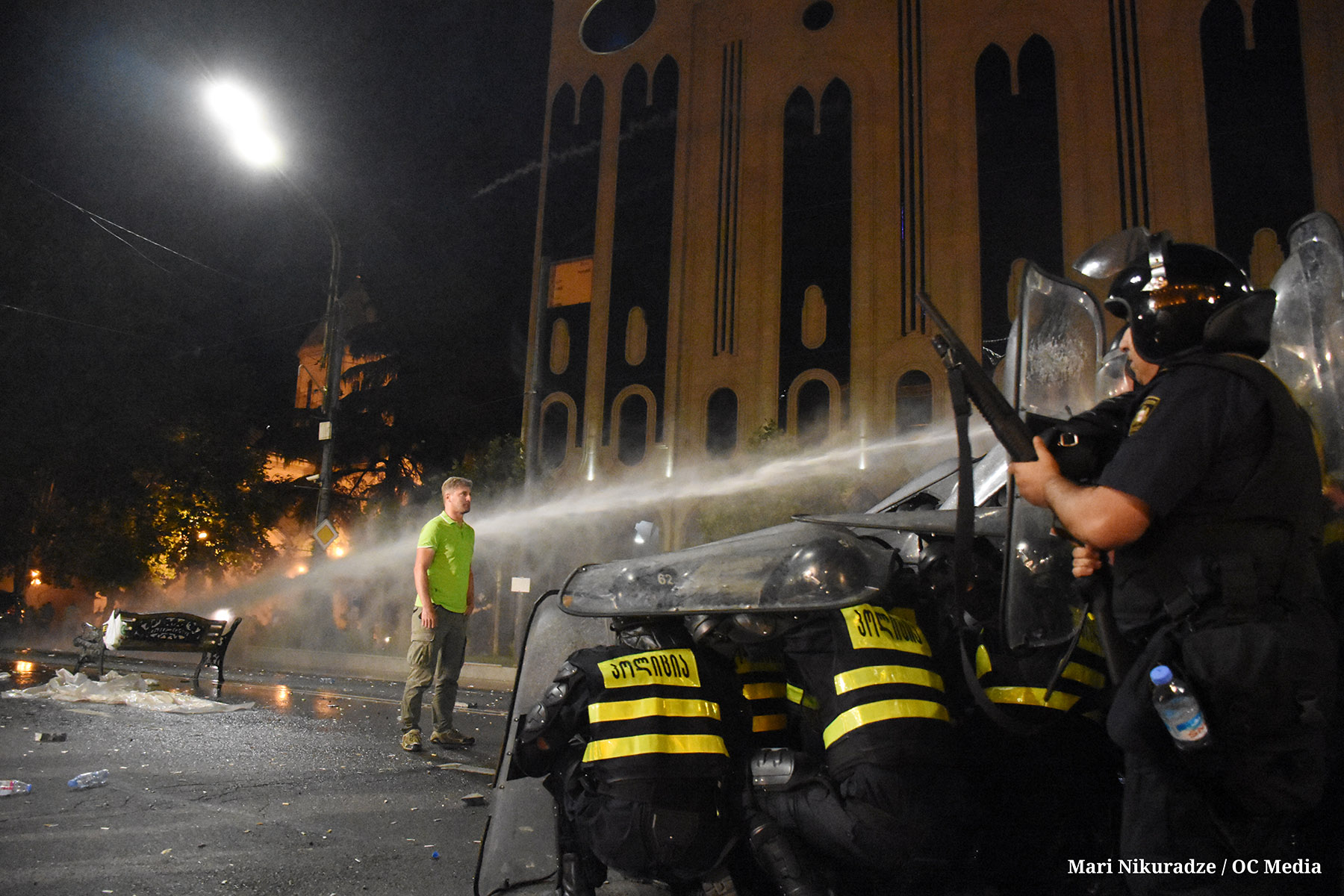
The UNM’s Khatia Dekanoidze warned that the authorities would have to ‘arrest all political leaders’ if they decided to storm the UNM office.
‘If the government takes violent steps, they will damage the country and also destroy themselves’, Giga Bokeria, a leading member of the opposition European Georgia party warned.
Since the warrant was issued for Melia’s arrest, the US Embassy in Tbilisi has issued several statements calling for restraint.
Government critics also attacked Gharibashviil for his rebuke of Zygimantas Pavilionis, the chair of Lithuania’s parliamentary Committee on Foreign Affairs.
During a visit to Georgia, Pavilionis criticised Georgian authorities for their ‘aggressive, autocratic tone’.
On 20 February, Pavilionis warned that Georgia could ‘turn into Belarus’ unless ‘political repressions’ stopped.
Gharibashvili dismissed the comments. ‘We are a hospitable country, but insulting statements by such guests are completely unacceptable and mean nothing to me and my team,’ he said.
Aleko Elisashvili and Levan Ioseliani of the Citizens Party, who are among only six opposition MPs not boycotting parliament since the elections, criticised the government’s proposed plans and also condemned Gharibashvili’s ‘aggressive rhetoric’.



